
Hue And Cry’s Pat Kane: “That’s one of the basics of establishing the hook of a song: to have a great opening lyrical metaphor.”
We hear both sides of the story behind the emergence of the 80s blue-eyed soul pop brothers from North Lanarkshire
Along with Wet Wet Wet, Simple Minds, Del Amitri and Deacon Blue, blue-eyed soul pop duo Hue And Cry were one of the most successful acts to emerge from the Scottish music scene that stormed the charts in the 80s. North Lanarkshire-born siblings Greg and Pat Kane started making music together in 1983, when Pat was about to graduate from university and his brother was still at school.
Their debut album Seduced And Abandoned spawned their biggest hit Labour Of Love in 1987 (read Hue And Cry wrote the song in our Summer 2017 issue) after the first single I Refuse had failed to make the UK Top 75 the year before. Two massive hits followed from their second album Remote: Looking For Linda and Violently. To the delight and surprise of the Kane brothers, the band had been a commercial success, however Hue And Cry were dropped from their label after the release of their third album Stars Crash Down.
The duo took an experimental leap forward into the 90s, creating a number of LPs – Truth and Love, Showtime! and Piano & Voice – that infused jazz, drum ‘n’ bass, R&B and Nuyorican Latin-funk. Later that decade they signed to the Scottish jazz and classical record label Linn Records for their 1996 album Jazz Not Jazz and 1999 album Next Move, but these two releases turned out to be the last for Hue And Cry before an amicable split.
Greg and Pat have continued to make music independently, and we caught up with them both as they prepared to release Pocketful Of Stones, their first album of original material since 2012…
What was the Kane household like growing up, musically?
Greg: “We had a piano that was bequeathed to by my grandfather and it sat dormant since it was dumped in the spare room of the house. One of the neighbours was a piano teacher and she was obviously touting for business and she met my mother at the local store and said, ‘Do any of your boys want to play piano?’ I was first down that morning and my mum asked me and I said yes. That decision when I was eight years old was more fundamental to my career than I could ever imagine!
“I used to faithfully go there until I was 15 years old, so I managed to get all my grades, played a lot of Beethoven and a lot of Mozart, and that sort of stuff. There’s something about being a musician, if you really enjoy practicing that’s the main hurdle to get over, and from a very young age it was installed in me: that practicing was fun. A lot of the jazz musicians, that I’ve spent a lot of time working with, have that ethos. The Royal Conservatoire in Glasgow is the third best music college in the world now, and sometimes I go in and do some guest lectures and you realise that the practice ethos is all – you cannot even communicate with those kids unless you that level of ability.”
How did you go from classical music to playing in a pop band?
G: “That was always my thing – just practicing – but when I got to school all of that was thrown out the window because my pals were all punk rockers! So then I had to pretend I couldn’t play! I couldn’t tell them I knew all the chords when they were struggling to form a B minor. The amount of pain I used to see on those kids’ faces!”
How did you start making music together as brothers?
G: “At that point, I was putting punk bands together at school in the late 70s – early 80s. Pat was three years older and an avid reader of English literature, so I approached him and said, ‘We can’t write words. We can write music but can you write some words?’ So Pat supplied the words for our first band The Vikes and we played Costello, Clash and Ian Dury & The Blockheads influenced punk music. That was the first time we got together to write songs together.”
Pat: “The Vikes was actually from a science fiction novel by John Brunner, and it’s an abbreviation of the word vicarious, meaning people enjoying other people’s pleasures. Straight away that’s an example of me bringing in knowledge from outside of pop music, to inform how we write songs. Also, because it was the post-punk era, there were a lot of bands – like Scritti Politti, A Certain Ratio and Gang Of Four – who brought material in from other areas. My head was full of film, literary theory and English modernist classics, and every bit of learning I was going to try to get into the songs.”
G: “That sort of relationship has maintained: I mostly write the music and the melody and Pat writes the words. The friction and compromise that comes from that – me trying to edit and filter, and him trying to make my music much more complex. Pat doesn’t want three chords and the truth, we wants thirty-three chords and the truth, so you’ve got to keep his interest or he gets bored very easily.”
P: “What I like about quotes from philosophy or literary ideas, is there’s usually a great metaphor. I think that’s one of the basics of establishing the hook of a song: to have a great opening lyrical metaphor. I think that’s one of the things I like about songwriting is, even the most hardcore EDM track is called something – it’ll have some sort of semantic reference to something. So there’s a constant verbal aspect of pop music, which is real creative opportunity. That’s my favourite trick in songwriting: to make something sound like it’s just a great hook, but as a conduit to a whole range of other arguments and discussions.”
What happened with to those early bands?
G: “With the singer that we had – Mark, who’s still a good friend of mine – I didn’t think his lyrics were good enough. Remembering I was listening to a lot of Joe Strummer, Elvis Costello, Joe Jackson and Ian Dury, I’d set the benchmark as high as possible with the lyrics! But, y’know, if you’re going to do it you might as well do it right. So when I brought Pat’s lyrics to Mark and he sang them, you could sense that he’s like, ‘Okay, this does work and it’s much more fun to sing because the lyrics are better than mine.’ Mark was a frontman, a handsome guy, he modeled himself on Joe Strummer, so if we could sing lyrics as good as that, then it all works really well. Pat was proud of it but it wasn’t the sort of music he liked – he was more Marvin Gaye, Stevie Wonder, John Coltrane…
“Then another school band I was playing saxophone in, the singer left and the bass player tried to sing and play at the same time and couldn’t do it, so Pat came and auditioned and that band was named The Winning Losers. That was round about ’81 or ’82, we did a handful of demos and got played on local radio. Eventually, the band threw Pat and I out because we were increasingly writing most of the new songs.”

Greg Kane: “We would do a lot of our writing in the Warner/Chappell rooms… That’s when it all started as Hue And Cry.”
Was it an organic process whereby songs simply emerged as you played together?
G: “Pat would mostly say, ‘I’d like to write a song about…’ and go through a handful of rhyming verses or lines, or give a general overview of what he wanted to write about, then that would influence me. I seemed to have an ability to create a mood that was influenced by his lyrics, and as my technique evolved the mood would get more complex. Pat’s got very good ears – he’s not a musician, so he can’t play anything – but he knows when he likes something and when he doesn’t like something. He just can’t tell you why! It’s really good to have that ability to take a step back and take a big overview of it, and that’s what Pat can do.”
Pat, when are you likely to be inspired to suggest a topic for a song?
P: “The best conditions within which I want to write are when it seems to matter, and when it seems to be a possibility for a song to capture a mood or a mindset. But that can be just a private mindset, as well”
Does the brotherly conflict, compromise and differing perspectives helps the songwriting process?
G: “Yeah, because I’ve written songs with other people and it can be quite a cynical procedure. It’s something I don’t get much joy out of, but if you’re signed to a publishing deal your company can ask you to write with other artists. But Pat and I are never cynical. If you’re writing with your brother, you’ve got to be completely honest because the moment either of us is dishonest you can sense it. There’s a blood bond and you know everything about each other, so when it comes to writing songs there’s no bullshit. Even if it’s a difficult topic to deal with, or it’s something that’s a bit awkward, we still see it through to the end and present in front of our fans, and they can react in whatever way they want.”
At what point did you form Hue And Cry and record your debut album?
G: “There was a local recording studio called Berkeley Street and we used to record our demos there. The guy who owned it, Alan McNeil, said, ‘You don’t have to pay for these if you let me manage you.’ Obviously, with Pat and I being young students at the time, we preferred putting £50 back in our pocket! We came home, told our father and he said, ‘You didn’t sign anything did you?’ And we said, ‘No we didn’t,’ and we never did – Alan managed us through the first 10 or 15 years of our career and he was always there for us. He got us the deal with Warner/Chappell in 1984, and their guy Paul Curran, who was a big influence in our early career, used to encourage us to write. At that time, Pat had graduated from uni and was working in journalism in London, so we would do a lot of our writing in the Warner/Chappell rooms, just off Oxford Street. That’s when it all started as Hue And Cry.”
Pat, did working as a journalist help with your lyric writing?
P: “Totally. With a song like [1989 hit single] Looking For Linda, that’s straightforward reportage of an actual encounter with a woman seizing control of her life. I wrote it very quickly after the event and I didn’t really amend it after that. I’m proud of it because it’s a story song and that’s a great genre for folk and country, but it’s not so usual for blue-eyed pop-soul, and it works.”
What sort of music were you influenced by at that time?
G: “Pat and I are big jazz fans and I’m a classically trained piano player, so we embrace complexity when it comes to the music that we reference, we talk about and we like. Don’t get me wrong, my guilty pleasure is Kasabian!”
Tell us about the new album. You’ve been making music for a long time now, so is this a fresh approach in any sense?
G: “We always try to set ourselves tasks and have a certain set of parameters when we’re writing a song – that’s the way we’ve always seen it – so this time around was quite interesting. Pat wanted a record full of ballads, but I’m the practical guy in the band and knew it was going to be really difficult to play a tour with all ballads. You need to think about this before you embark upon this huge expensive, emotional journey.”
P: “The thing was, how do you commit to an album of ballads? Or more of album of ballads and anthems, because some of them went uptempo, but how do you commit to that? That’s what the whole album is about: how do you line up who you are with what you do? It’s about that tension between personal politics and public politics. Love songs can be a private but they can also be public love songs – and hate songs. That’s the field that I plough lyrically.”
G: “We’ve got a beautiful piano in our own studio in Glasgow, so I said, ‘Ok I’ll do you a ballads album, but you come into the studio and we don’t leave the room until we can play verse-chorus-verse-chorus of a song that didn’t exist in the morning. If we can do that 17 times, I can pick 10 or 12 tunes.’ So that’s what we did and sometimes it was really easy and sometimes it was a complete nightmare. I’d recorded everything and those writing sessions went so well that we’re actually releasing those demos, called Pocketful Of Stones Unpolished. It’s warts and all, the first time those songs had ever been played from top to tail, but you get to hear how the songs started. We chipped away for eighteen months to two years on this record, but this is our fourteenth or fifteenth studio album and every time it gets longer and longer to make. I don’t really know why.”
It’s not getting any easier then?
G: “It’s not difficult, it’s really not. The palette of sounds and possibilities are endless, so you should never be sitting not knowing what to do! It’s just the decision-making is becoming more deliberated as the years go on. Our poor manager was pulling his hair out!”
Interview: Aaron Slater
Hue And Cry’s first album of original material since 2012, Pocketful Of Stones, is out on 1 September. Find out more at hueandcry.co.uk


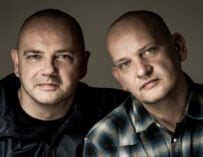
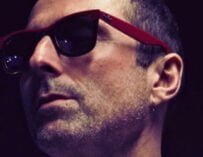

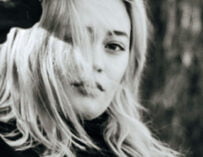
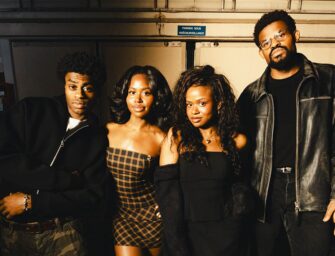


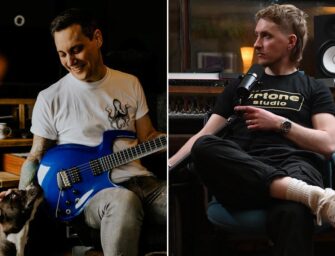
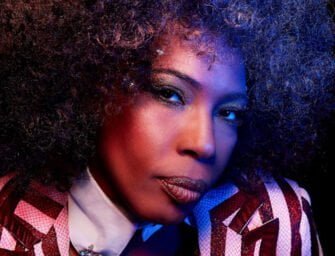





















Related Articles